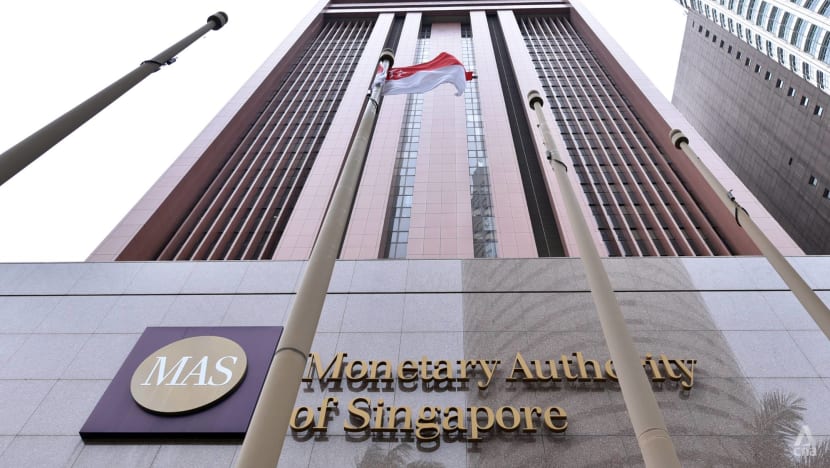MAS losses due to currency translation effect, does not affect investment performance and Government’s budget: Lawrence Wong

File photo of the Monetary Authority of Singapore building on Shenton Way. (File photo: CNA/Jeremy Long)
SINGAPORE: The S$7.4 billion loss recorded by the Monetary Authority of Singapore (MAS) in the last financial year was due to a currency translation effect, Finance Minister Lawrence Wong said on Monday (Aug 1).
This refers to the effect of translating the foreign currency value of the official foreign reserves into Singapore dollars, and is “not relevant” to the central bank’s investment performance which is measured in foreign currencies.
It also has “no bearing” on the international purchasing power of the official foreign reserves or MAS’ conduct of monetary policy, added Mr Wong in response to questions from Members of Parliament.
In FY2021/22, the MAS made investment gains of S$4 billion on Singapore’s foreign reserves. However, these were outweighed by negative currency translation effects of S$8.7 billion arising from a stronger Singdollar as the central bank tightened monetary policy.
“As MAS tightened monetary policy in October 2021 and January 2022, the Singapore dollar had strengthened against several of the foreign currencies in which the (official foreign reserves) are held. This meant a currency translation loss when the (official foreign reserves) were reported in Singapore dollar,” said Mr Wong who is also Deputy Prime Minister and MAS’ deputy chairman.
He stressed that this has no implications for the international purchasing power of the foreign reserves.
“In fact, given the purpose of the (official foreign reserves) in safeguarding the international purchasing power of the Singapore dollar, it is the foreign currency value rather than the Singapore dollar value of the (official foreign reserves) that matters.”
The losses – MAS’ first since the financial year ending in March 2013 – also has no impact on the central bank’s conduct of monetary policy. Rather, they are a “consequence” of MAS’ policy actions, Mr Wong said.
Addressing questions about the impact on the Government’s budget position, Mr Wong first pointed out that the Government does not expect MAS to deviate from its mandate of ensuring macroeconomic stability in order to maximise its contributions to the public coffers.
One of the ways in which the MAS contributes to the Government’s budget is the net investment returns (NIR) framework where the Government can spend up to 50 per cent of the expected long-term real return on the net assets invested by MAS, GIC and Temasek.
As the NIR is based on the long-term expected returns of these three investment entities, it is not affected by their short-term performance. Therefore, MAS’ net loss in the last financial year “has no impact on the NIR that is available to the Government”, Mr Wong said.
Like other statutory boards, the MAS also makes contributions to the Government in lieu of corporate income tax.
But recognising that contributions from the central bank can vary considerably from year to year due to the combined effect of currency translation and investment returns, the Government has taken the step to smoothen this volatility by requiring annual contributions by MAS to be paid in equal proportions over a period of three years.
This, according to Mr Wong, has been the case since FY2019.
“This means that even though MAS recorded a net loss for FY2021/22, the Government will receive S$1.1 billion from MAS based on the contributions accrued for the previous two financial years when MAS recorded net profits,” he added, noting that this “smoothening formula” has helped to mitigate the impact of MAS' net loss on the Government’s budget.
Asked by MP Liang Eng Hwa (PAP-Bukit Panjang) about the impact of rising interest rates, Mr Wong replied that there will be implications for both MAS’ interest expense and investment income.
“MAS will have to spend more, perhaps, when it needs to borrow as part of money market operations to manage banking system liquidity.
“But on the investment side, over the medium term, rising interest rates will also help to raise investment income from our foreign asset holdings.
Taking both into consideration, MAS should be able to manage the effects of rising interest rates on its financials over the longer term, Mr Wong said.



















